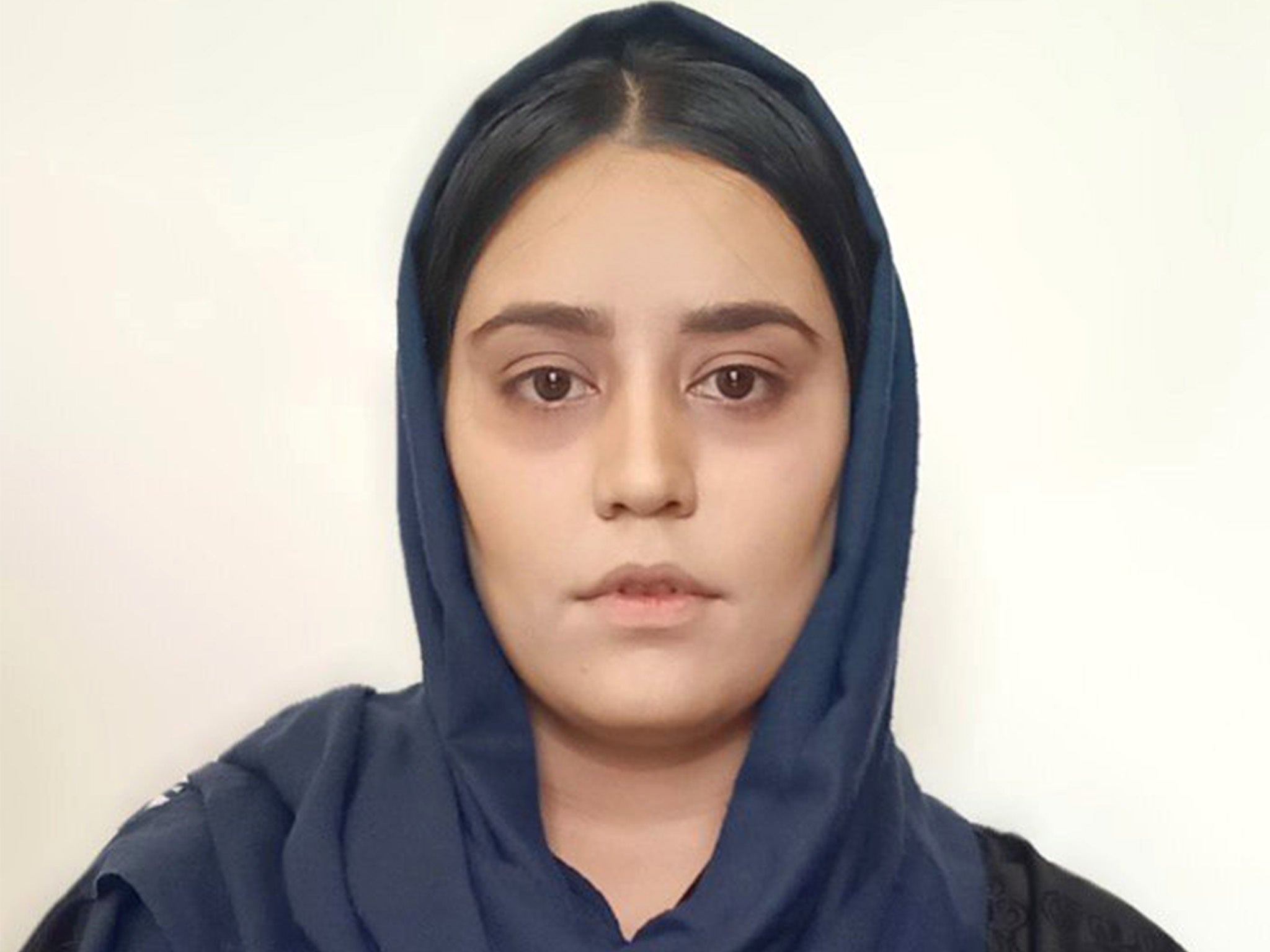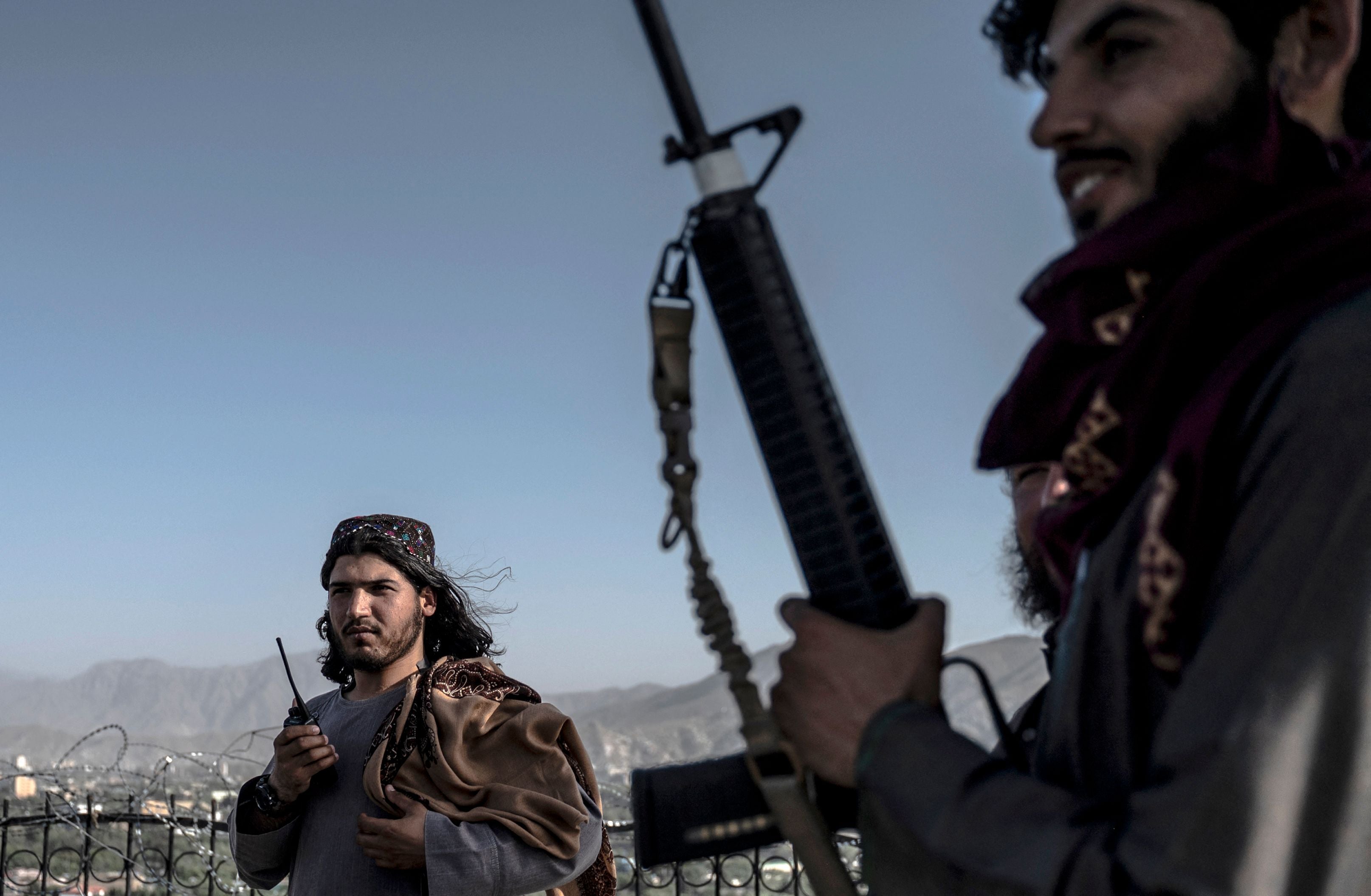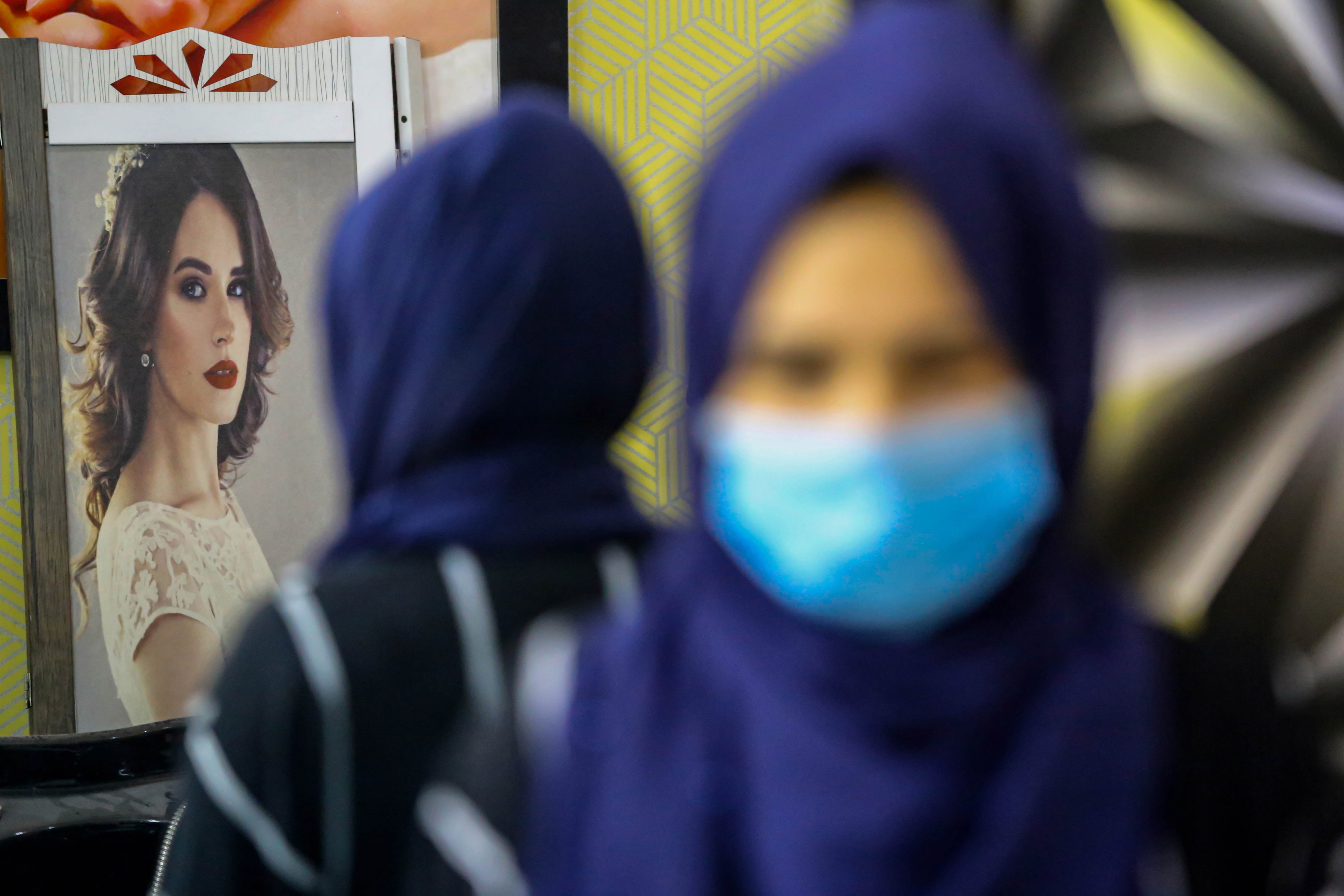Forced to be a Taliban official’s wife, she was imprisoned for 156 days: ‘They beat me up till I passed out’
Exclusive: The daughter of a three-star army general, who says she was forcibly married to a Taliban leader after the fall of Kabul, tells Arpan Rai she was brutally punished for videos exposing the man who raped her


Your support helps us to tell the story
From reproductive rights to climate change to Big Tech, The Independent is on the ground when the story is developing. Whether it's investigating the financials of Elon Musk's pro-Trump PAC or producing our latest documentary, 'The A Word', which shines a light on the American women fighting for reproductive rights, we know how important it is to parse out the facts from the messaging.
At such a critical moment in US history, we need reporters on the ground. Your donation allows us to keep sending journalists to speak to both sides of the story.
The Independent is trusted by Americans across the entire political spectrum. And unlike many other quality news outlets, we choose not to lock Americans out of our reporting and analysis with paywalls. We believe quality journalism should be available to everyone, paid for by those who can afford it.
Your support makes all the difference.Like many Afghan women, Elaha Delawarzai’s life was irrevocably changed after the withdrawal of US and allied forces from Kabul. Not long after the Afghan capital fell, she was picked up from a market in Kabul and forcibly married off to a high-ranking Taliban official, she says, the beginning of a two-year nightmare that ended with being thrown in a jail cell for 156 days by the country’s militant rulers.
Delawarzai says she suffered brutal torture during her latest detention, including deprivation of food and water, and assault and interrogation.
“The sounds of torture of prisoners came from the rooms, prisoners in solitary confinement and till today, I hear them when I try to go to sleep,” Delawarzai tells The Independent over a call from an undisclosed location, just days after escaping Afghanistan.
The 25-year-old daughter of a three-star army general in Afghanistan, she has now twice escaped the clutches of the Taliban, and recounted the trauma she suffered after allegedly being forcibly married, raped and beaten by her Taliban husband. After speaking up against his atrocities and fleeing she was captured again, and sent to more than five months of brutal detention during which she was repeatedly given electric shocks.
Delawarzai, who was studying general medicine at the Kabul University of Medical Sciences, says that until recently she imagined a life for herself that was full of promise and financially secure.
But that all changed when the hardline Islamist group stormed back to power in 2021 after overthrowing the Western-backed Ashraf Ghani administration. She says powerful Taliban leader Saeed Khosty, a former spokesperson for the interior ministry, “forcefully” married her and then raped and beat her for months.
Delawarzai managed to escape his house in August last year, and once free uploaded videos of her abuse. One such clip shows her confronting Khosty and asking him to leave the house, after which he can be seen warning her that he had armed men with him.
Her freedom was short-lived, however, as she was caught and detained by the Taliban three months later in November. She says she was imprisoned in a tiny room at a detention centre in Kabul by the Taliban’s General Directorate of Intelligence (T-GDI).
Delawarzai finally escaped the hardline regime’s clutches this April – after 156 days of detention – and left the country. She is now in hiding.
She says she remembers every day of the beating she received and the nightmare she suffered until she was let go.
Delawarzai says she suffered punishments such as electric shocks on her private parts, being left without proper food and surviving on just a single glass of water every day. She has become an extreme example of how the Taliban mistreat women under their regime.
In December last year, weeks after Delawarzai had gone missing, human rights activists at Amnesty International wrote to the de facto authorities saying that they were aware she had tried leaving for Pakistan due to “fear of persecution and further violence against her but was returned to Afghanistan against her will, and is now being held at T-GDI”.
Her family informed Amnesty that she had been missing since 11 November 2022. On 30 November 2022 the family told the rights group that she was being held at T-GDI, Amnesty said.
She says she knew the risks when she posted her videos and photos online that showed alleged sexual violence, beatings, torture and ill-treatment at the hands of Khosty.
“I didn’t want to be his slave, but the Taliban put me in prison to silence my voice,” she says.
“The first 96 days I was kept in a dark room, where I spent the bitter winter of Kabul on an ice-cold floor. My bones still hurt from the sub-zero temperature inside the room.”
Before being put in that cell, she says she was made to remove every piece of clothing and given an old full-length dress and scarf, which she had to continue wearing for nearly 100 days without any change.
“I was taken to another room where some men claiming to be from the Taliban asked me about posting the video of abuse at the hands of Saeed Khosty and if I did not respond to their questions of ‘who is funding me from the West’, they would beat me with water pipes and rods till I passed out,” Delawarzai says.

She says the torture during her detention under the Taliban was eerily similar to her first house arrest after being forcibly married to Khosty, who previously worked as the spokesperson for the Ministry of Internal Affairs that controls the intelligence wing of the de facto rulers.
“They would strike all over my body, and especially my private parts to get an answer,” she says, adding that unknown men in plain clothes entered the room where she was being interrogated, and she could not work out if they were from the Taliban or just spectators coming in to watch her.
“They asked me which country is backing me.
“There was no doctor, two Talib men would come and even if you begged to be given medicine, they would tell you to pull up your pants so they could inject a medicine in you, denying any tablet for pain,” she says.
Food was a piece of bread with a glass of water and, on better days, she was given boiled beans. She, however, says the portion looked like it was meant for a toddler.
The water was red in colour and bitter, with obvious signs of spiking with some drug, Delawarzai explains, adding that immediately after having the water, she felt drowsy and could not remember much of her day.
On days of her menstruation, she spent nearly a week in one place as she was just given a piece of cloth without any undergarment.

“When I got out of my individual cell and met other women in the general detention cell, I learnt that they also suffered from a similar memory loss after drinking and eating the food given to us,” Delawarzai says, noting the impact that the period had on her faculties. She says she could earlier memorise chapters of her medicine textbooks in just one night.
“It was difficult to swallow the water, but it was what we got and we could not ask for more. We were in no condition to eat or chew,” she says. “I started seeing blood in my urine, and when I asked for medicine from the attendants, they only offered paracetamol.
“I was in pain and saw blood for two weeks. I was allowed to use the toilet just once a day for five minutes and a guard was stationed outside. Showering was not allowed and my entire body developed rashes,” she says.
Khosty denied charges of physical assault shortly after the allegations emerged last year and said he married Delawarzai as his second wife, but filed for divorce, claiming she insulted the Quran.
The Independent’s calls and messages to the Taliban interior ministry spokesperson Abdul Matin Qane have not been answered.
In one of her final videos posted last August, Delawarzai said: “Nobody might see me again and I might die, but it is better to die once than die repeatedly.”
This time she prays she will be able to remain in hiding and not be handed back to the Taliban.
“I prayed for my death in detention,” she says.
Join our commenting forum
Join thought-provoking conversations, follow other Independent readers and see their replies
Comments